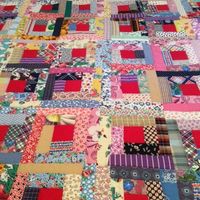The Caboose has slowed down recently, it seems to be a seasonal thing when pretty annuals are beckoning from the greenhouses and my bike and faithful 1986 Honda scooter are calling for action. My blog may chug along a bit during the summer and I expect will be full speed ahead in the fall, but now it gets a rest.
Here's just one more little piece I've had sitting in storage waiting for it's turn on my train.
You might vaguely remember seeing the name Juchitán somewhere. Or maybe not. It sounds like "Hoochy-tan" and was in the news a lot in September 2017 after a devastating earthquake destroyed most of the city. It's rebuilt now, but that place has another connotation for me.
Macho men and ultra-feminine women are Mexican stereotypes, but in the city of Juchitán, tucked away in a corner of Oaxaca state live indigenous Zapotec people who are sometimes called Mexico's "third gender".
They're known as muxe, pronounced "moo-shay", men who are born male but adopt roles and identity that are associated with females.
Year ago I had a Spanish teacher from Juchitán, a young woman named Gelin, and one day in class she told us about the muxe, the first time I'd heard that odd word.
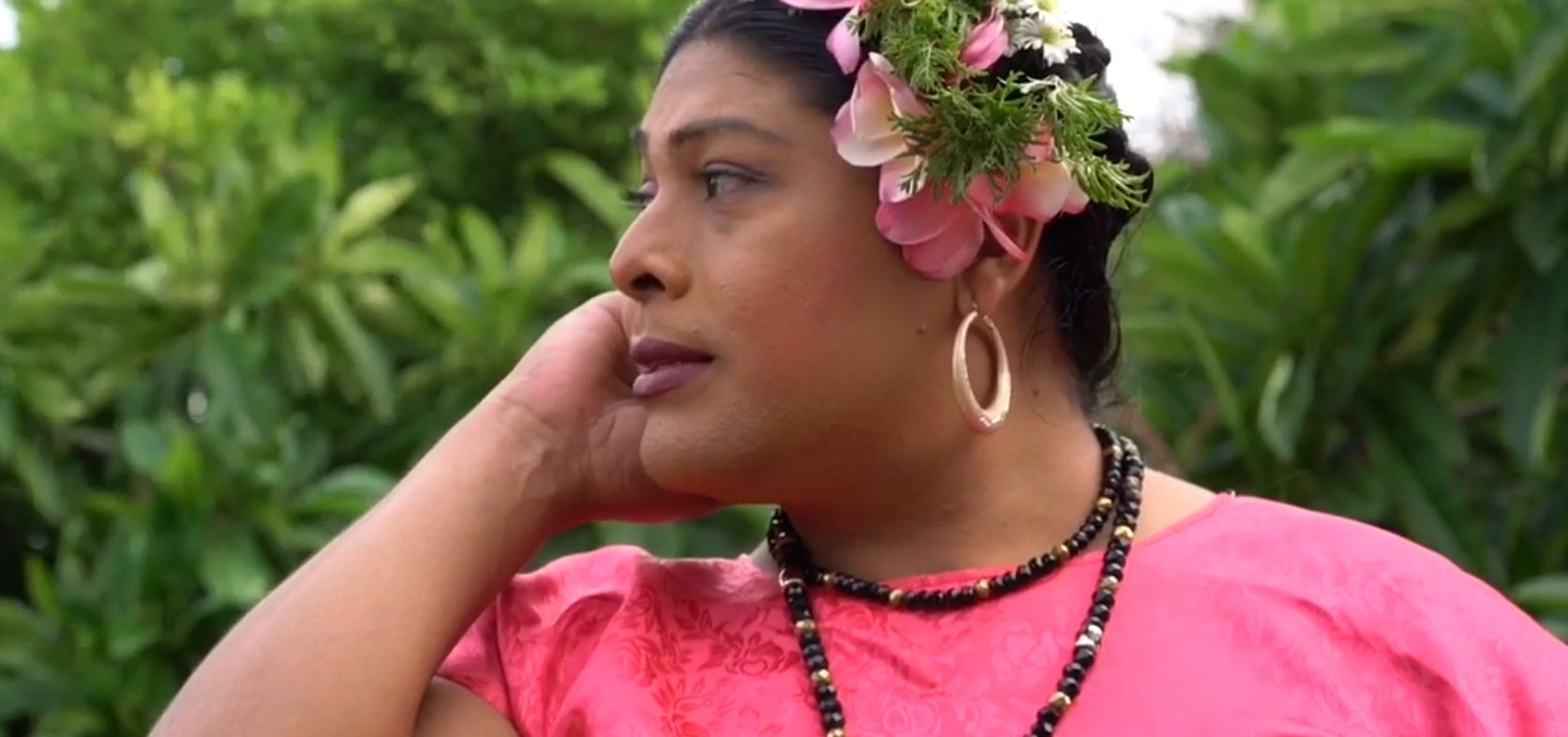
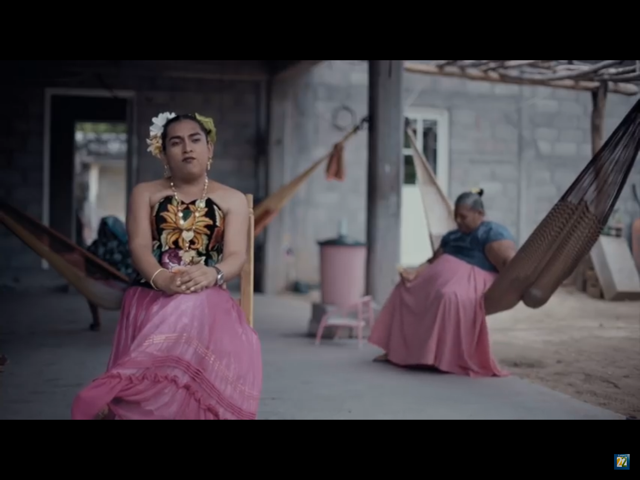
They're not considered gay, nor do they identify as bi-sexual, transgender, transvestites, two-spirited, drag queens or queer. They are simply muxe. Although there is some discrimination towards them - it seems they can't go to school in their female garb - they're accepted as part of the Zapotec community and part of the culture.
They see themselves as a hybrid third gender and don't normally seek gender-altering surgery. Most wear make-up and dresses, but they aren't necessarily concerned with passing as female, they're only striving to be a beautiful muxe. There is a difference.
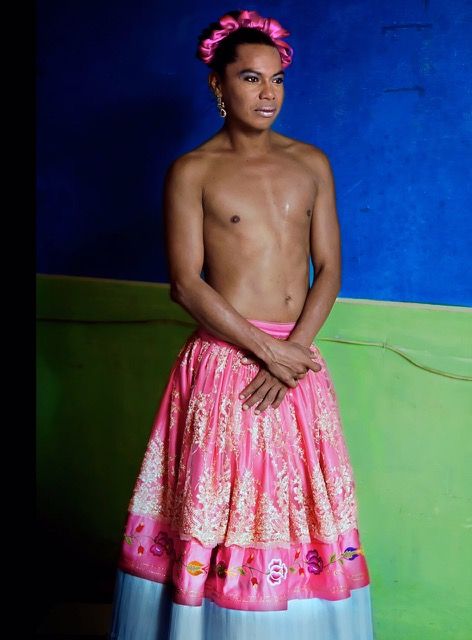
Men are men, women are women, and muxe are muxe. They are a duality and see their gender as a fundamental part of who they are, not a choice they've made but the way God made them.
Mothers are often happy to have a muxe in the family since they're less likely to get married and often remain at home as built-in caregivers for aging parents.
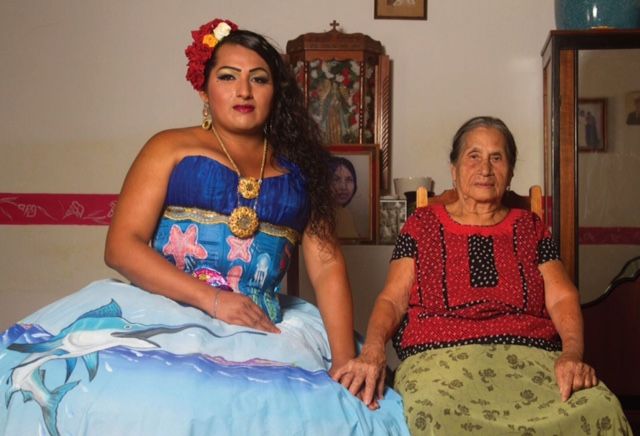
It's common to see muxe around the city of Juchitán, working as vendors in markets, hairdressers, seamstresses, acting as cooks and caregivers. They have a reputation for being hard workers and their contributions are valued in the community.
Producing elaborate fiesta decorations falls to them, as well as the painstaking embroidery required on traditional dresses. It's important work in this society of plentiful cultural celebrations and pride in heritage.
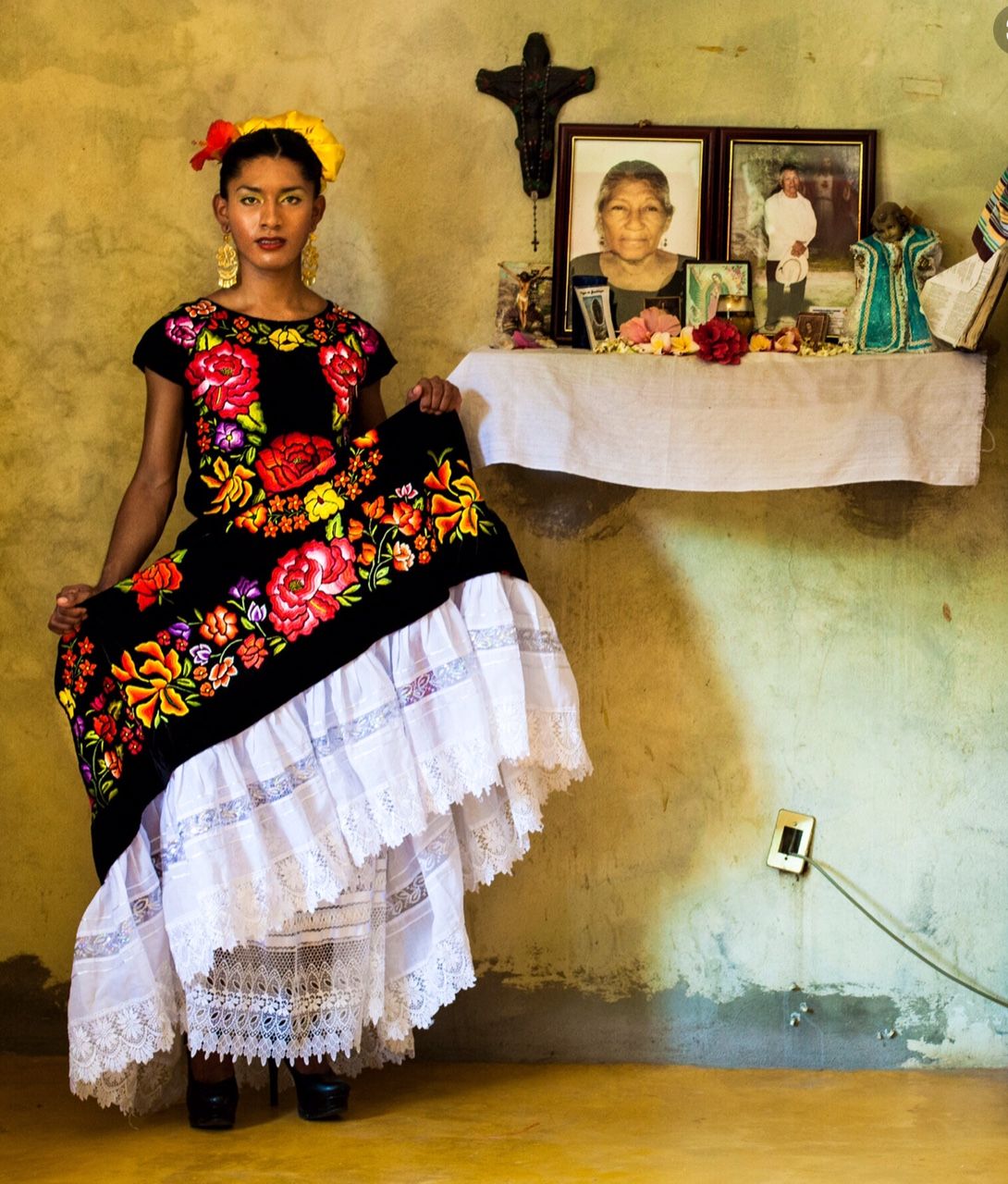
A third gender may have its roots in pre-Hispanic Zapotec culture but there's a modern feel to the muxe identity these days.
Both the muxes below are activists and educators.
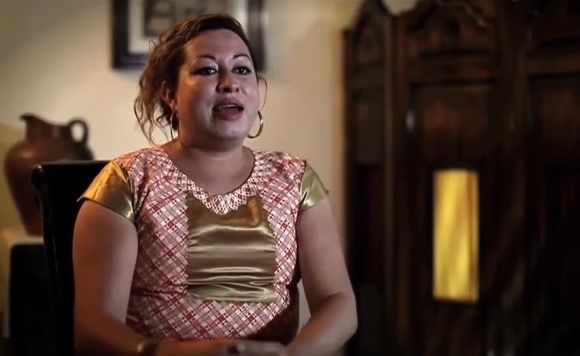
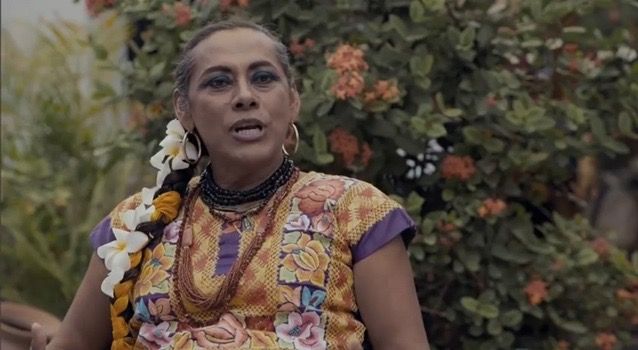
The city of Juchitán lives for social events and one I'd like to see someday is the fiesta that honours muxes called "La Vela de las Intrépidas Buscadores del Peligro".
Translated as "The Celebration of the Bold Seekers of Danger" it sounds like quite a show. I visualize something like a Pride event with non-stop embroidered dresses, loud music and tacos.
It's the only event of its type that actually has the blessing of the Catholic Church and includes a Mass where muxe are allowed Communion.
The annual party attracts thousands of tourists and locals alike and adds lots of pesos to the economy. It's a beauty-pageant of fake eyelashes, heavy make-up and the richly decorated traditional huipiles and long skirts that muxe of all ages have always been proud to wear.
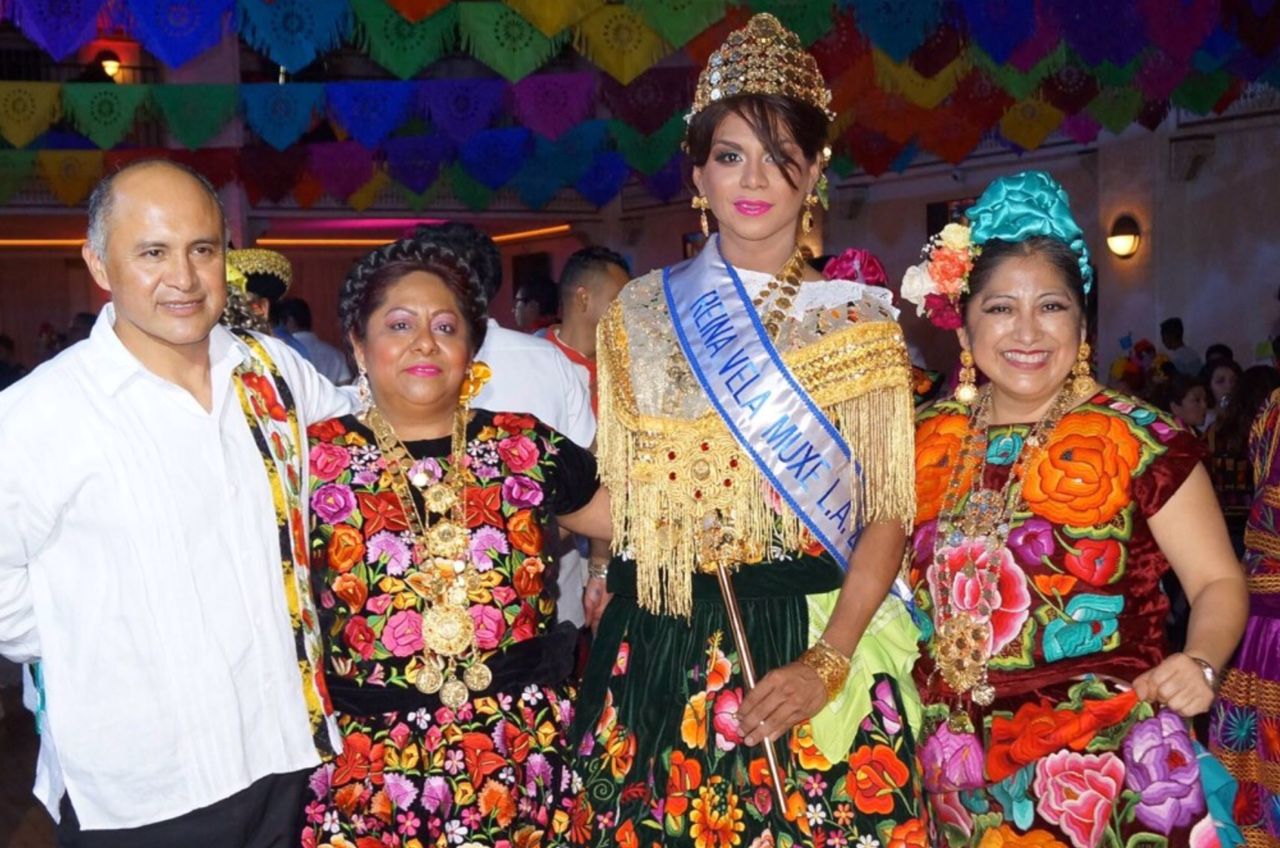
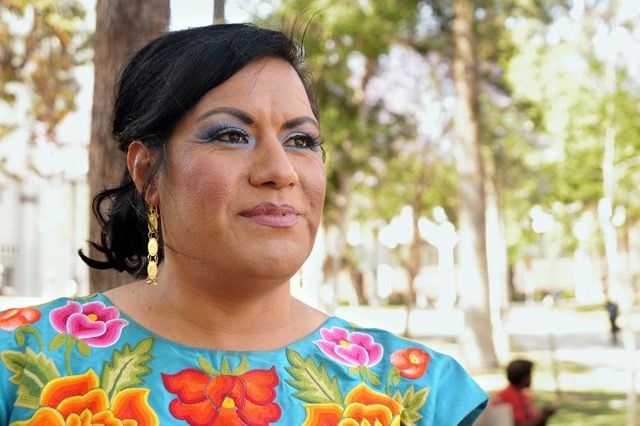
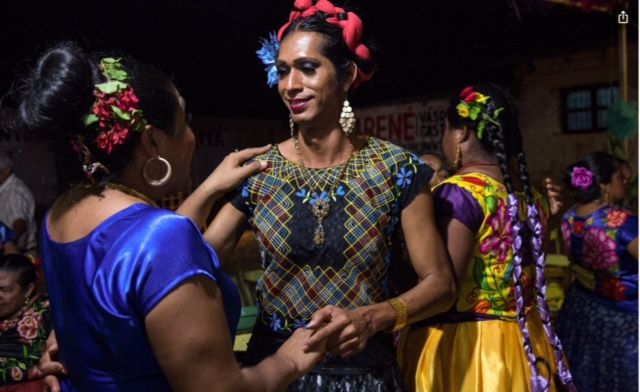
The world of international fashion has discovered this segment of Mexican culture. In December 2019, the Latin American edition of Vogue magazine featured the undeniably elegant muxe Estrella Vazquez on the cover.
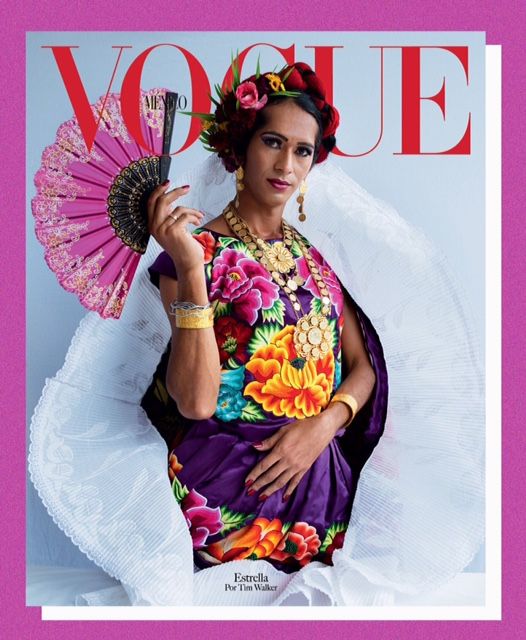
This is probably my first Caboose post that isn't based on first-hand experience so none of these photos are my own. They were all gleaned from the internet where I found YouTube interviews, documentaries and articles about the muxes of Oaxaca.
Maybe someday I'll get to Juchitán, camera in hand and my Spanish skills at the ready. I'm always curious about the unusual edges of conventional society and the individuals who make their lives there, one of the things that make travel, and humanity, so endlessly interesting.
Thanks for reading this story and any others, and I hope you've enjoyed my posts.
Happy Summertime!
-Jean

